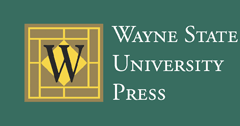Abstract
This article is conceptualized as a communication perspective on the stories told and the stories lived by people with Williams Syndrome (WMS). The site for this study is the Berkshire Hills Music Academy (BHMA) in South Hadley, Massachusetts where I conducted ethnographic interviews and taught communication courses for two years. I argue that it is not only the stories that people with WMS tell about themselves but how they tell them that shapes their identity as people with WMS and that it is, in fact, the music-based learning community provided by the BHMA that enables these stories to be told. I conclude by providing a specific story “in action” used by these BHMA students to create an alternative disabled identity.
Recommended Citation
Mackenzie, Lauren
(2007)
"“Does This Look Like a Disability to You?” Stories As a Tool for the Creation of an Alternative Identity in a Music-based Learning Community,"
Storytelling, Self, Society: Vol. 3:
Iss.
2, Article 4.
Available at:
https://digitalcommons.wayne.edu/storytelling/vol3/iss2/4

